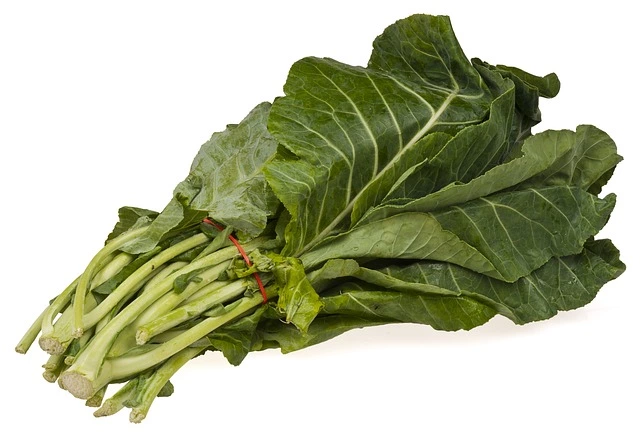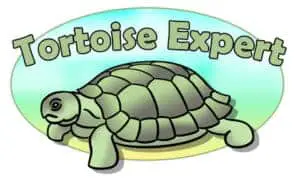
If provided in moderate amounts, tortoises can safely eat collard greens. Collard is rich in vitamins and minerals, so in moderation, it can be an asset to a tortoise’s diet. Bear in mind that collard should only make a small portion of the diet, and you should offer other types of greens as well. This will help the tortoise extract all the nutrients it needs from food.
What Are Collard Greens?
Collards are part of the Brassica Oleracea species from the Acephala Group. They have tough stems, leaves that look somewhat like fans which are a dark green color. They are part of the same category of greens that include turnips, kale, and mustard greens. These are all safe for tortoises, which means that collard may be included in their menu as well.
What Do Collard Greens Contain?
Collard is high in minerals and vitamins, which is why its addition into a tortoise’s diet is highly recommended. These are all the nutrients your tortoise can draw from consuming collard:
- Low protein (ideal, as too much protein is not good for most species of tortoise)
- Fat
- Carbohydrates (fiber and sugar)
- Calcium
- Iron
- Magnesium
- Phosphorus
- Potassium
- Zinc
- Sodium
- Folate
- Vitamin A
- Vitamin C
- Vitamin A
- Vitamin K
Overall, collard greens are rich in vitamins A, B6, and C, but also in calcium, iron, and magnesium. This will help with healthy bone and shell development. Collard also contains small amounts of niacin, thiamin, choline, and pantothenic acid, which help tortoises derive energy from their food among other vital biological processes.
In order for tortoises to be healthy, their diet needs to be high in calcium, fiber, and vitamins, and low in protein. This essentially sums up the composition of collard greens, hence why they are such a great choice. So greens are great for tortoises, but while they do contain minerals, their mineral content is not usually very high. This is why they need to be fed in combination with other foods and supplements.
Greens (collard included) are packed with nutrients, but they also have compounds that can be harmful to your tortoise if consumed in excess. Goitrogens from greens can affect their kidneys, liver, and thyroid glands.
Whilst their diet would have to be pretty consistently unvaried for a long time before any ill health from goitrogen ingestion would become evident, it’s still best to keep your tortoise’s diet varied, if nothing else because it ensures they consume a wide range of different nutrients.
Importance of a Balanced Diet for a Tortoise
Tortoises are usually not picky eaters when it comes to the foods they consume. Think about how tortoises usually behave in the wild. Strolling around and unbound, they come across different types of plants. Today, they might find some dandelions, so they make the most out of them. Tomorrow, they might find clover, so they make a meal out of that as well. Depending on the area, they may go for several days only eating a certain type of food – but even they know that eventually, they want and need to eat something else.
Imagine if you were to eat the same thing over and over. Sure, potatoes are good for you as a source of carbohydrates, but you also need protein and other vitamins that are not present in potatoes. You may be fine with eating just potatoes today, but eventually, you’ll start feeling weak and groggy if you keep it up for too long. You’ll get sick of potatoes, and you’ll want something else – because, in a way, that’s your body asking for other nutrients.
The same thing applies to tortoises. In order for them to grow up healthily, you need to give them a varied diet. Collard greens are good for them, as they contain nutrients, but any kind of food in excess can cause more harm than good. If they are part of a balanced diet, then your tortoise can grow healthy, as it is getting the nutrients that it needs.
Collard Greens and Tortoise Hydration
Tortoises, regardless of their species, need proper hydration in order to survive. Without water, they can easily dehydrate, which may lead to various life-threatening conditions. Making sure your tortoise has a bowl of fresh water ready is always good – but aside from that, you also need to make sure they can get enough hydration from their food.
Similar to other vegetables, collard also has high water content – 94% water, to be more precise. To reap even more water content from the collard, you might want to sprinkle it with some fresh water before feeding it to your tortoise.
If your tortoise stays hydrated, it can easily eliminate the nitrogenous waste which will invariably build up in its body. If this waste accumulates in the body but is not removed, it can lead to a variety of health issues. This is why adding collard alongside a bowl with fresh water will ensure that your tortoise stays healthy and hydrated.
How to Feed Collard Greens to Tortoises
When feeding collard to tortoises, it’s best to offer it to them in the morning. This way, they can munch on it whenever they want, throughout the day.
Organic collard greens represent the safest option for your tortoise, as they obviously aren’t sprinkled with pesticides that can be harmful. Tortoises have a harder time digesting pesticides, even those that aren’t necessarily harmful – because after all, they haven’t been eating processed foods like humans their whole life. They need clean-grown food, like the kind they’d find in their natural habitat.
Wash collard greens thoroughly before feeding them to the tortoise and mix them with other veggies that your pet enjoys. If possible, you might want to sprinkle some mineral supplements or calcium carbonate over the collard as well. This way, you will make sure that your tortoise gets all the nutrients it needs, especially if you haven’t managed to forage for a wide variety of different plants.
The Bottom Line
In the end, we can say that collard greens are a great nutritional asset to your tortoise. Not only is this plant edible, but it is also packed with nutrients that your tortoise needs to grow. Bear in mind that while it is healthy for the reptile, collard should not be a pillar in its diet, and you shouldn’t focus only on that. Use it in combination with other foods, and make sure that your tortoise stays hydrated at all times.

